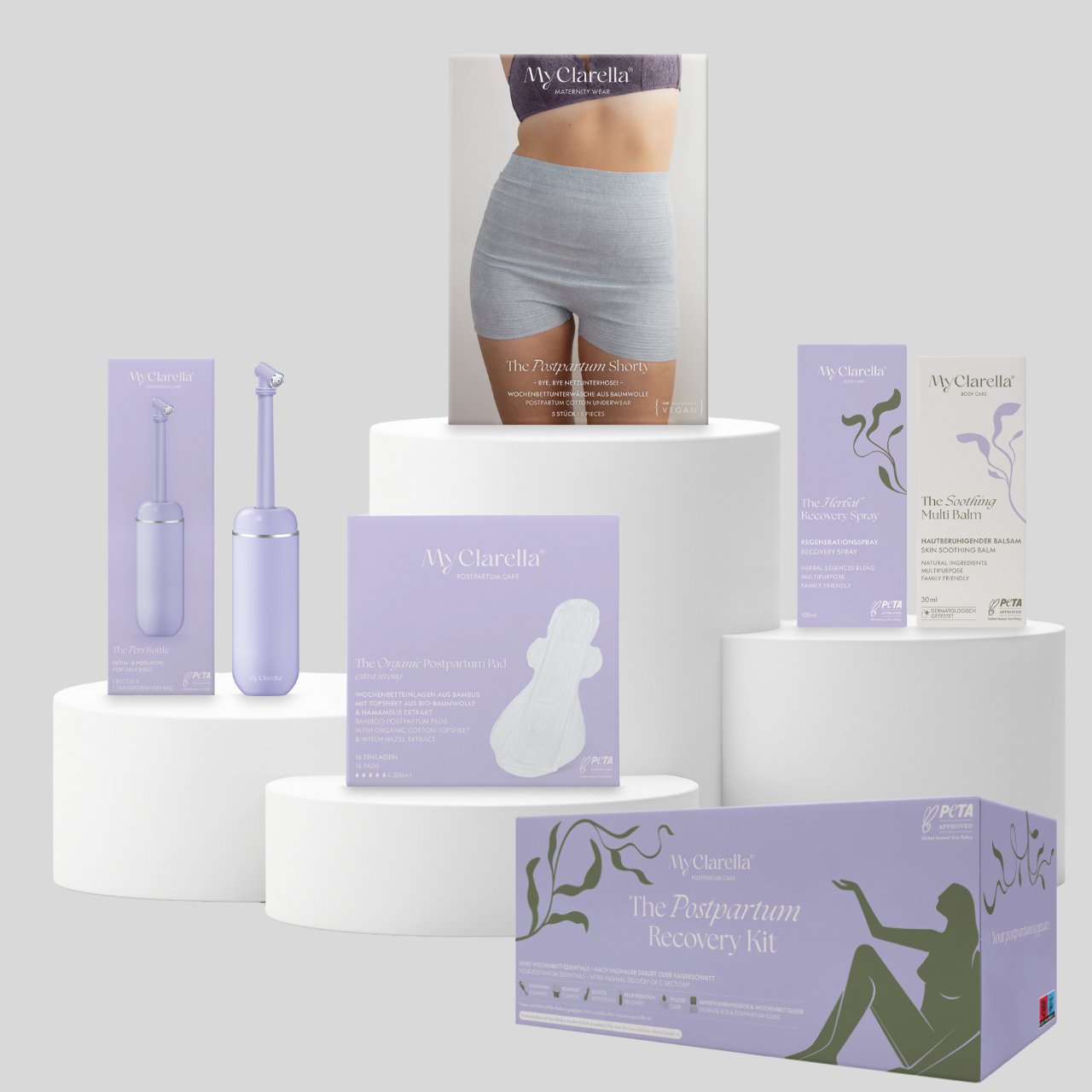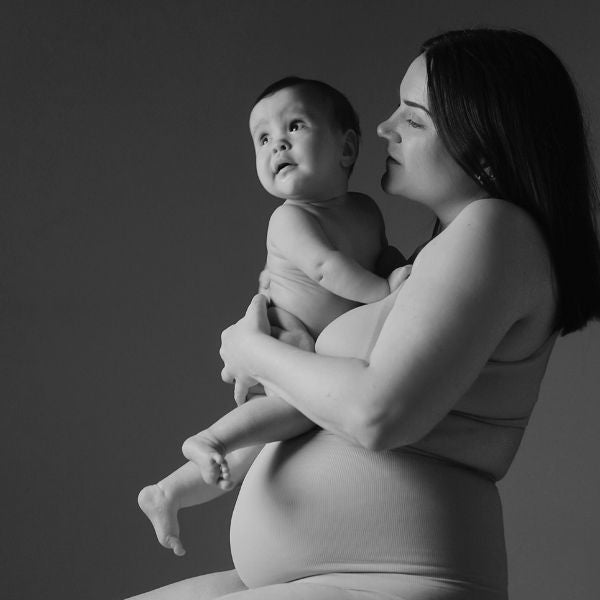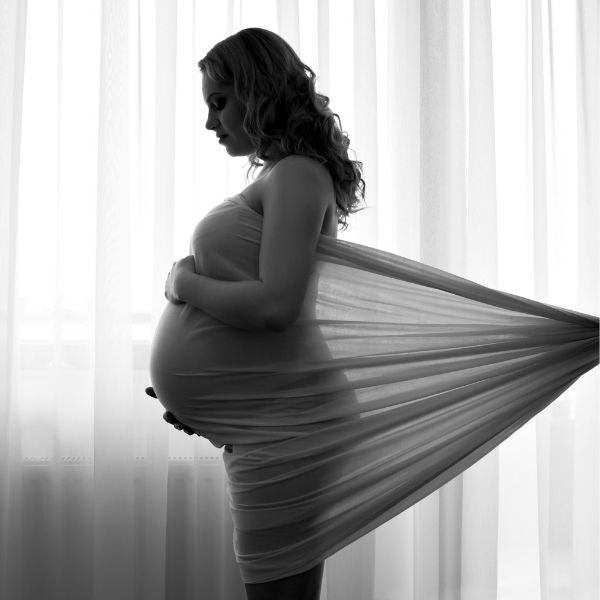Midwife talk with Sarah: Today Sarah tells you the most important things about the postpartum period.
WHAT IS THE CONFINEMENT PERIOD, WHERE DOES IT COME FROM AND HOW LONG DOES IT LAST?
“The word 'postpartum' originally comes from a time when mothers were not allowed to get up after giving birth. They stayed in bed for 40 days, therefore the postpartum period was also previously referred to as the 6-week period.
This rule was in place until around 1932 and meant strict bed rest. For example, the woman had to be lifted by the midwife so the bed could be made. Today, however, we know that mothers - if physically and mentally possible - should not stay in bed for 6 weeks, e.g. to prevent thrombosis.
Nowadays, the postpartum period is briefly defined as the 4-8 weeks immediately following the birth. During this time, you should recover, settle into your new phase of life, and give the uterus time to shrink back. The early postpartum period (1st to 9th day after birth) and the late postpartum period (10th day to the end of the 8th week) are still precisely defined.
In the past, women were cared for in hospital during the early postpartum period, but it was only in the 1990s that they were discharged after about the third day and received midwifery care at home.”
WHAT ARE THE DOS AND DON'TS DURING THE POSTPARTUM?
“DOS: rest, listen to your body and intuition, leave unimportant things aside.
DON'TS: overburden yourself with things like cleaning, tidying up, cooking, doing laundry, having to take care of visitors, etc.”
WHAT ROLE DOES THE MIDWIFE PLAY IN THE CONFESSIONAL PERIOD?
"You are entitled to midwifery care until the 10th day after the birth, so your midwife will come to your home during this time. After that, there is the option for the midwife to visit you a further 16 times until the baby is 8 weeks old. After that, there are even 8 more visits for breastfeeding and nutrition advice until the end of the breastfeeding period.
During this time, the midwife will monitor your baby's development, answer questions, check on you and any birth injuries you may have sustained, help with the baby's first bath, and much more.
This depends on your individual situation in which you and your partner need support.”
HOW CAN OUTSIDE PARTS SUPPORT THE CONFINEMENT PERIOD?
“For example, outsiders should not expect to be entertained even though they are guests themselves. During the postpartum period, the most important thing is to offer help, entertain the potential sibling, go shopping, bring food, do things that are stressful for the young family - or just stay away. It is also important to be sensitive and perhaps to sense when it is time to say goodbye. You are suffering from acute sleep deprivation 99% of the time and have just had a 180° turn in your life. A three-hour visit is not one of the things that is at the top of your wish list.
Conversely, you can think in advance about when you want to receive the first visitor and who is allowed to come. During this sensitive time, you should only receive visitors with whom you feel absolutely comfortable - know-it-alls are not welcome.
Your visitor should also understand that you will have to withdraw for an indefinite period for certain things, such as breastfeeding, even during the visit.”
YOUR TOP TIPS FOR THE CONFINEMENT PERIOD?
“My recommendation is to spend as much of the first week after birth in bed as possible. The phrase "sleep when the baby sleeps" is an absolute postpartum mantra. You also get to know your child well during this intensive time.
Another tip is to do as much paperwork as possible before the birth so that you are not under pressure during the postpartum period: child benefit applications and the like can largely be filled out in advance.”





Leave a comment
All comments are moderated before being published.
This site is protected by hCaptcha and the hCaptcha Privacy Policy and Terms of Service apply.